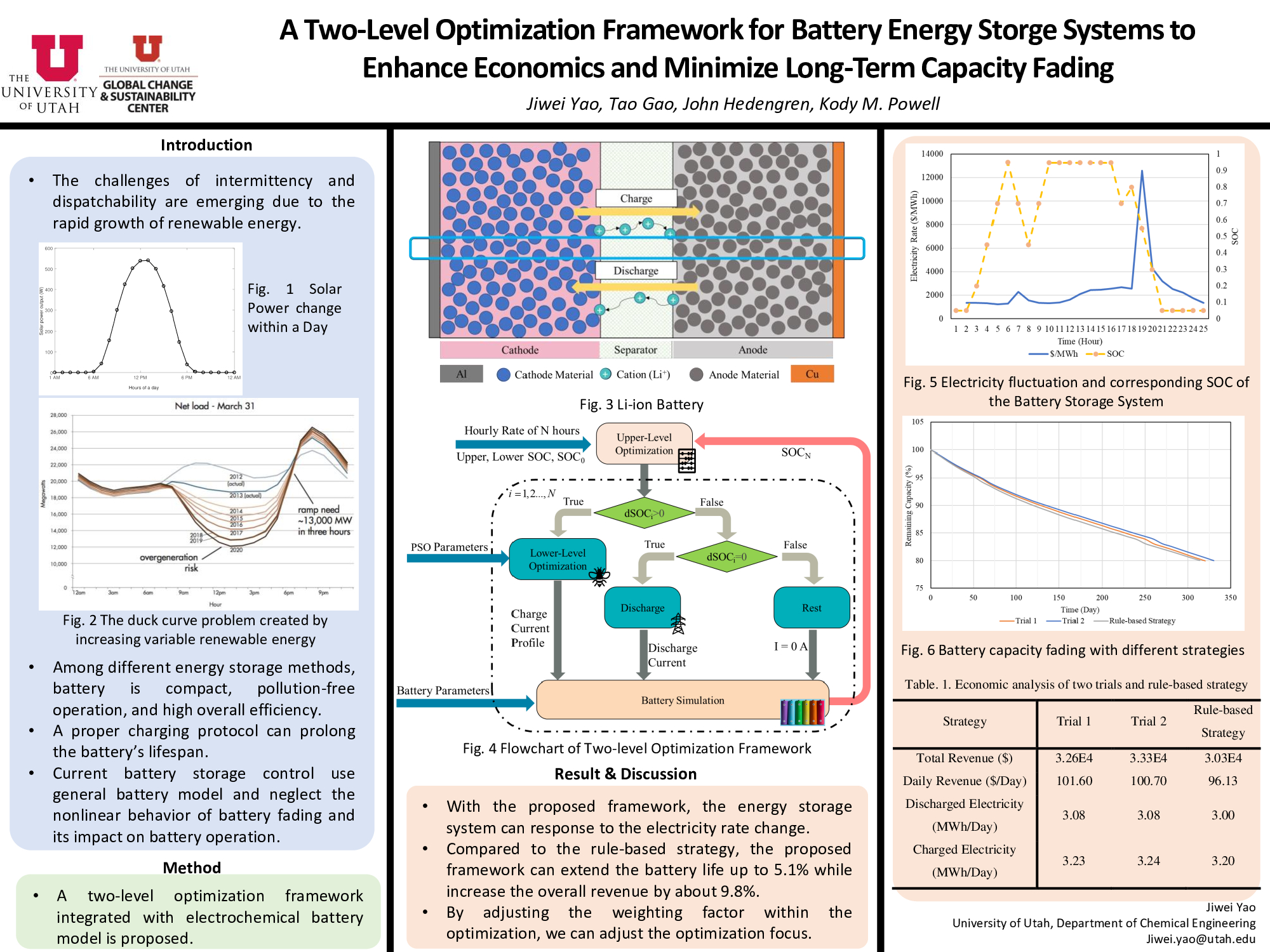A Two-Level Optimization Framework for Battery Energy Storge Systems to Enhance Economics and Minimize Long-Term Capacity Fading
–Jiwei Yao, Tao Gao, John Hedengren, Kody Powell
[bs_collapse id=”collapse_bb86-afd7″]
[bs_citem title=”Bio” id=”citem_e610-6c22″ parent=”collapse_bb86-afd7″]
I am a 2nd year Ph.D. Candidate in Dr. Kody Powell’s Lab within the Chemical Engineering Department. My research is focus on Li-ion battery operation.
[/bs_citem]
[bs_citem title=”Abstract” id=”citem_eca8-96a7″ parent=”collapse_bb86-afd7″]
This paper proposes a two-level optimization framework for a battery energy storage system to maximize revenue with consideration of the phenomena that cause battery’s capacity fading. Instead of solving the scheduling problem as a singular problem, a two-level optimization framework is introduced. The upper-level optimization focuses on maximizing revenue by arbitrage in a real-time electricity market. With the determined operating schedule, the lower-level optimization, solved with particle swarm optimization, determines the optimal charging current that mitigates the side reactions while maintaining economic performance. A case study using California energy prices is presented. With the proposed framework, the results show that the battery’s lifespan is extended by up to 5.1% and overall revenue increases by up to 9.8% compared to a singular economic optimization utilizing the standard constant current, constant voltage charging protocol.
[/bs_citem]
[bs_citem title=”Audio Narrative” id=”citem_780c-0f71″ parent=”collapse_bb86-afd7″]
During battery operation, side reactions cause capacity fading. This study utilizes a physics-based model to capture these side reactions. By integrating the physics-based model with the optimization algorithm, we can find the optimal operation condition (current) for the battery which can minimize the side reactions.
- Listen to Jiwei explain his research:
[/bs_citem]
[/bs_collapse]

